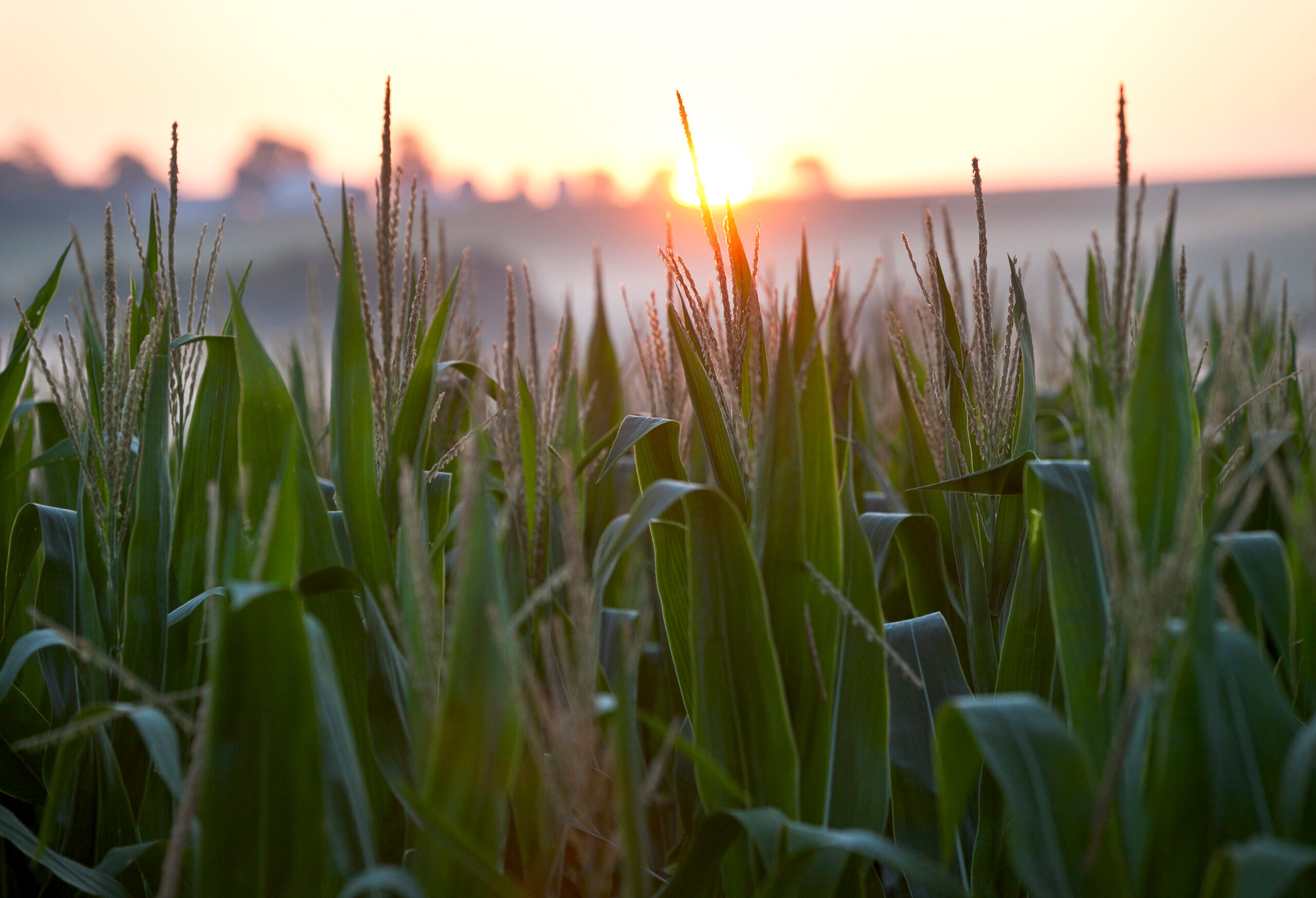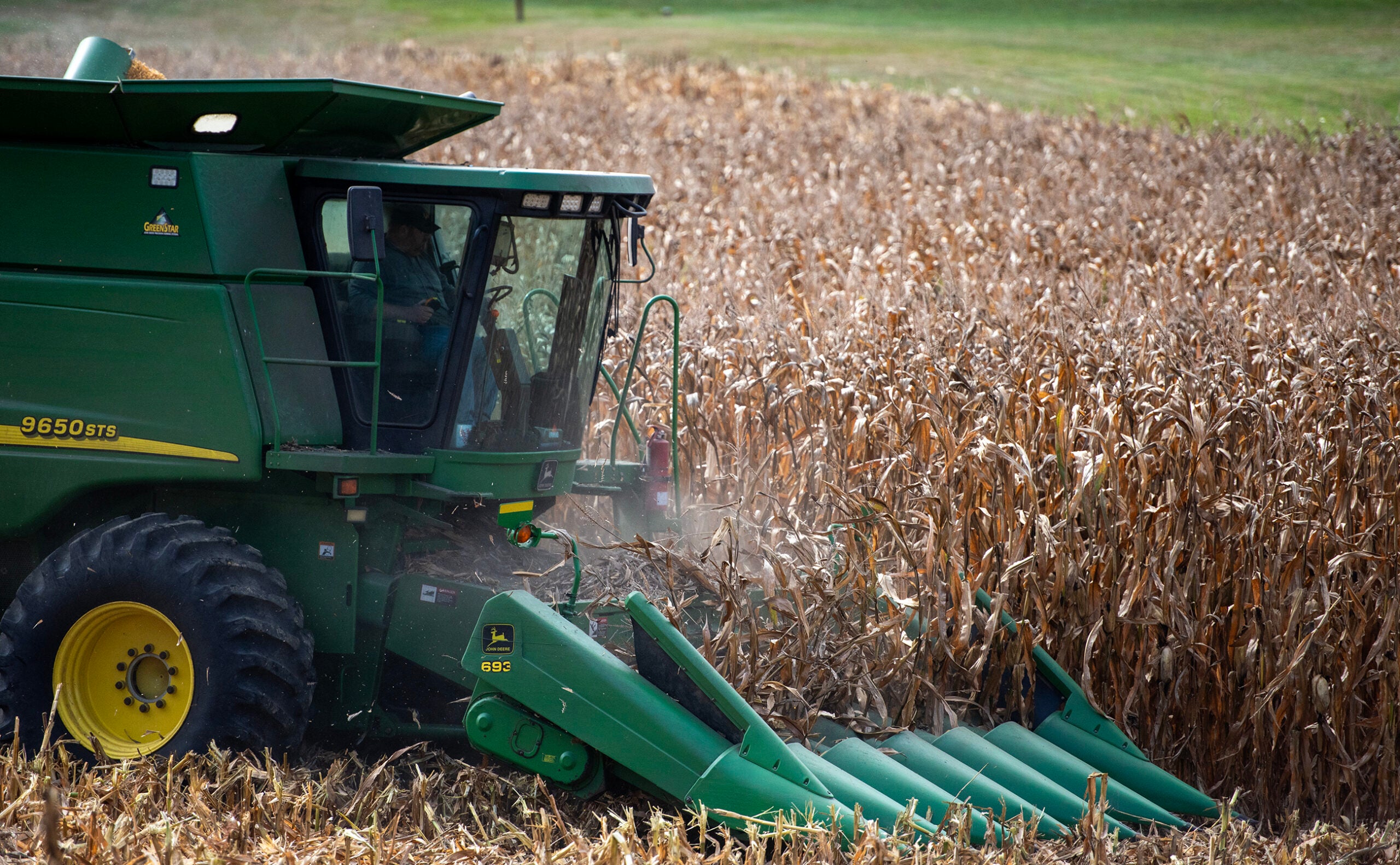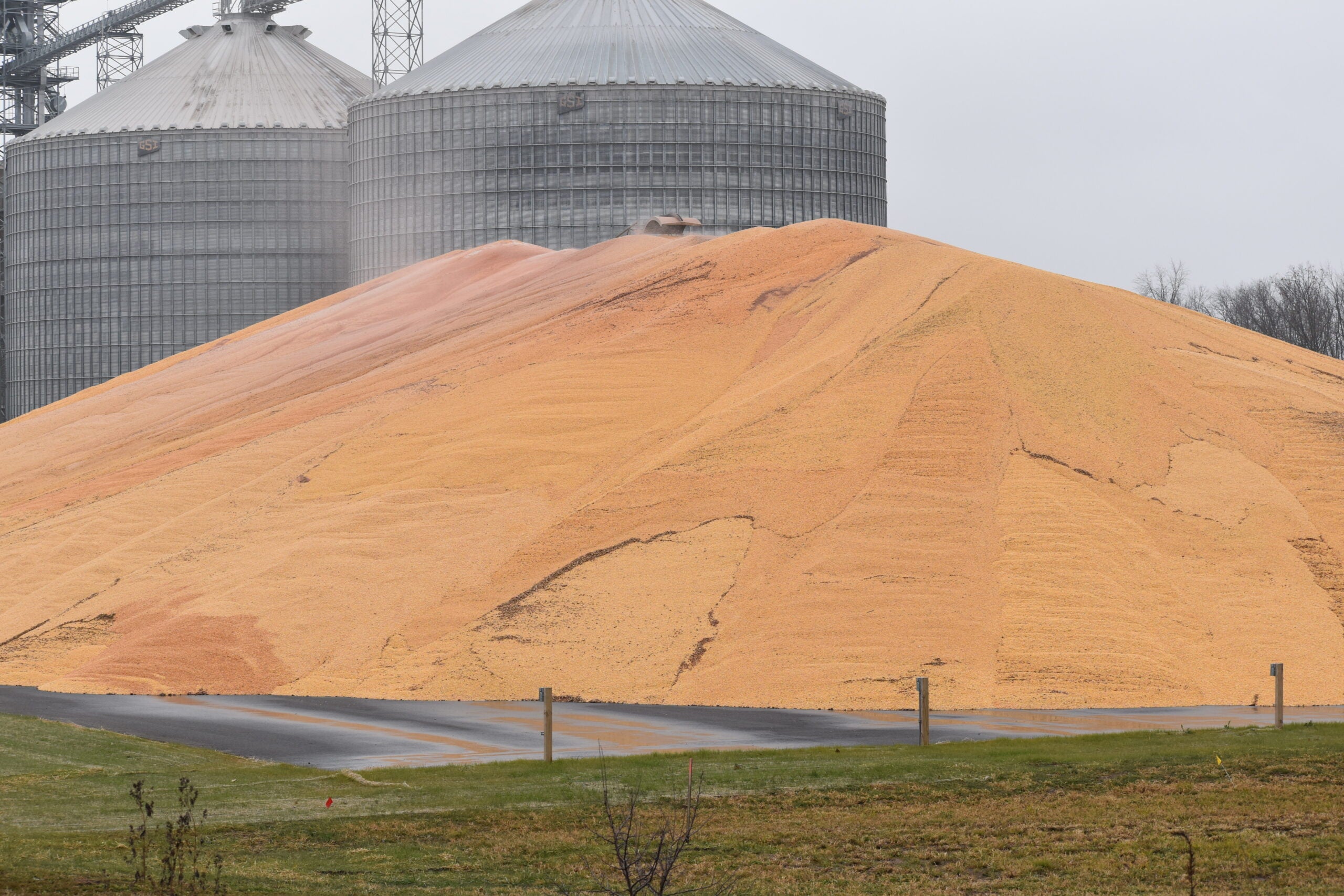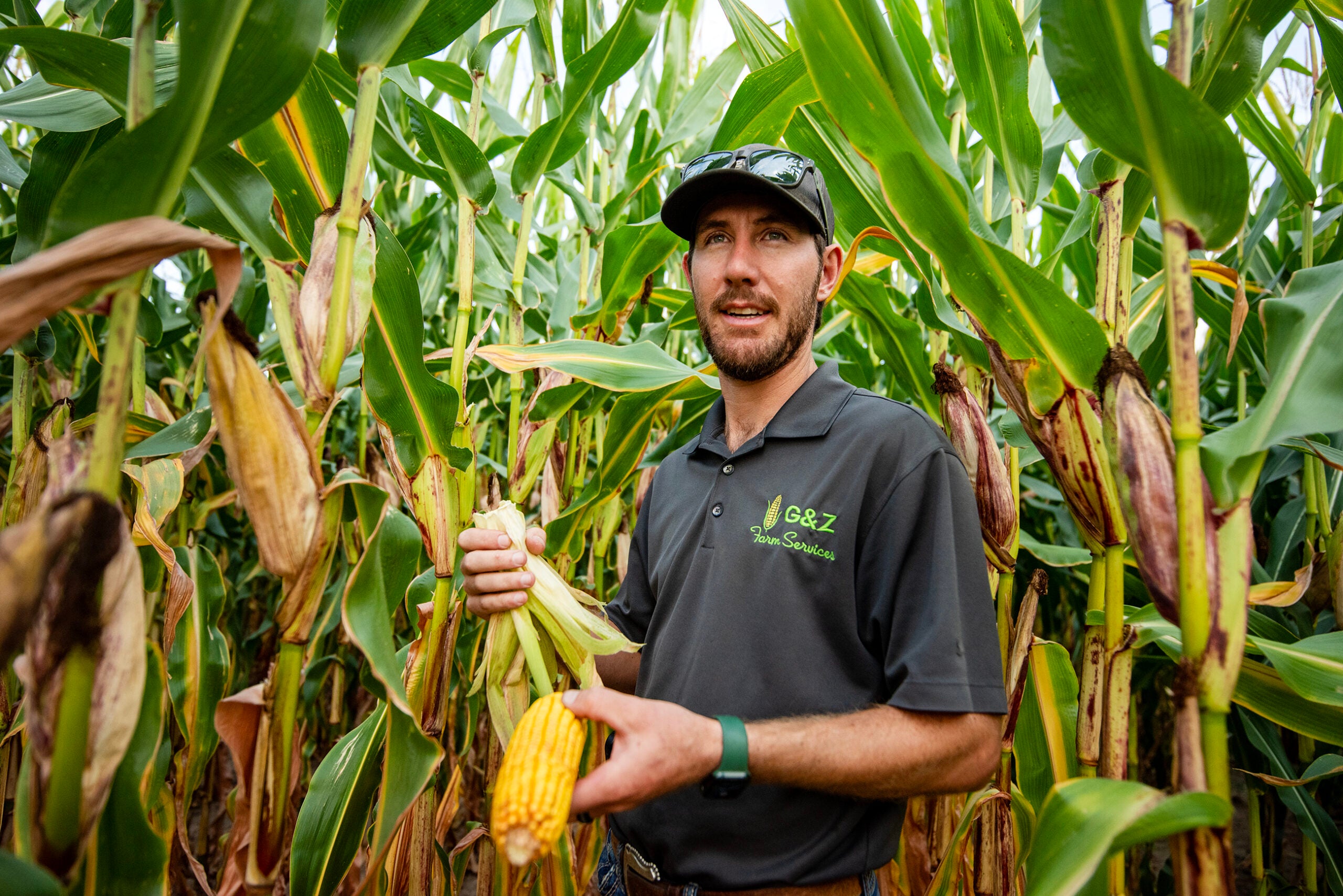Mold is starting to impact corn fields in Wisconsin thanks to last month’s wet weather.
Rotting corn stocks and muddy fields could make harvesting a challenge for many farmers in the state, and producers are anxious to bring in this year’s grain to prevent the spread of ear molds.
“The quicker that they can get (the crop) harvested, the faster that they can get the grain in, and the less likely that there’s going to be these issues down the road which could affect that grain,” said Damon Smith, an assistant professor of field crops pathology at the University of Wisconsin-Madison.
News with a little more humanity
WPR’s “Wisconsin Today” newsletter keeps you connected to the state you love without feeling overwhelmed. No paywall. No agenda. No corporate filter.
Smith said some ear rots can be cleaned from the grain before using it as feed. But other types of mold produce a harmful substance called mycotoxins.
“If they have the mycotoxin-producing organisms, they need to test that grain to see what levels are in there because there are established thresholds,” Smith said. “If they are above the thresholds, then that grain needs to come out of the feed supply and they need to destroy it or do something else with that.”
The prevalence of mold throughout this year’s corn crop is a disappointing end to the season, Smith said.
“Back in July and early August, the crops looked so good, and the yields were high, and everybody was being positive, I think, despite lower prices,” Smith said. “Now, this rain is just really hurting us.”
But finding a place to store the corn crop could also be a challenge for farmers this year.
The amount of corn in storage in Wisconsin has increased since last year.
The U.S. Department of Agriculture’s latest survey found corn stocks are up about 7 percent from 2015, with 72 million bushels in storage throughout the state.
“Farmers have been wanting to hang on to that (corn) and try to sell it at a higher price,” said Joe Lauer, UW-Madison agronomy professor. “Usually through the summer that price goes up, but that really didn’t happen very much this year so they continue to store it but now we have to make room.”
Lauer said farmers need to avoid mixing mold-impacted corn with previous harvests. And farmers will be faced with the added cost of drying the corn crop before it can be stored.
Wisconsin Public Radio, © Copyright 2025, Board of Regents of the University of Wisconsin System and Wisconsin Educational Communications Board.







